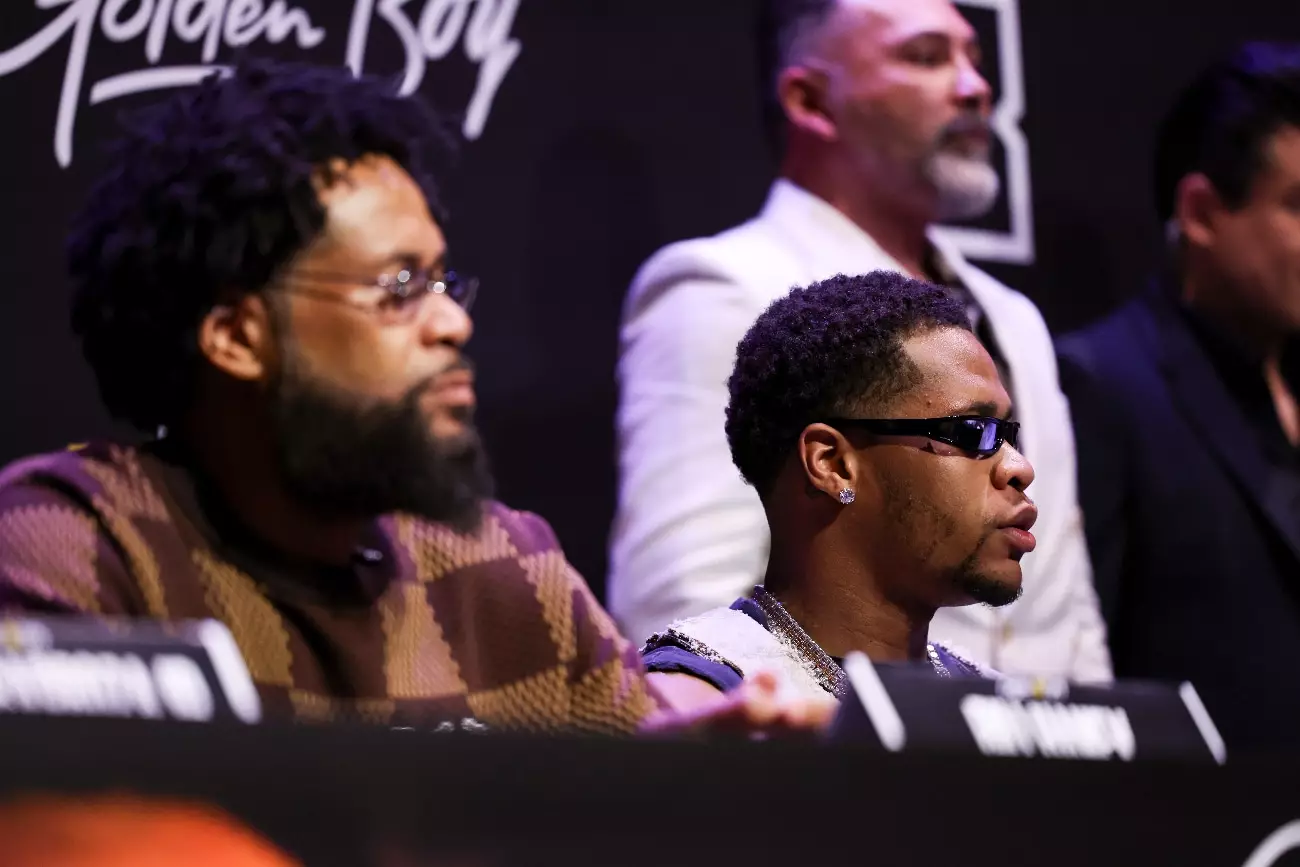BY BOXING HIT STAFF-
In the ever-evolving world of boxing, traditional paradigms are being challenged as new figures emerge to capture the public’s attention. Recently, Bill Haney, father and trainer of Devin Haney, drew significant attention when he posted a video on social media fervently praising YouTuber-turned-boxer Jake Paul. This unexpected endorsement raises questions about the current state of boxing and the implications for Devin Haney’s future within the sport.
Jake Paul’s swift rise to fame and fortune has garnered mixed reactions from boxing purists and casual fans alike. Once merely known for his online antics, Paul has carved a niche for himself as a legitimate player in the boxing scene, albeit through a non-traditional route. His ability to generate large pay-per-view numbers and captivate audiences has redefined what it means to be successful in boxing today. Bill Haney’s mention of Paul as the “Face of Boxing” is not just a compliment; it reflects the reality that marketability and fan engagement are becoming increasingly important in a sport once dominated by pure athletic prowess and legacy.
Bill expressed admiration for Paul’s hustle and his ability to attract new audiences to boxing. This acknowledgment signifies a shift in focus—from the technical abilities of fighters to their capacity to engage and entertain. In a world saturated with content and entertainment options, capturing the public’s interest is paramount. Jake Paul represents a new breed of athlete who expertly combines showmanship with sport, thereby challenging established norms and prompting a reevaluation of success within boxing.
Devin Haney, once heralded as one of the sport’s rising stars, now finds himself at a crossroads following his defeat to Ryan Garcia on April 20th. The loss, delivered with striking decisiveness, left many questioning Haney’s prospects in the highly competitive landscape of 140 and 147-pound boxing. With diminishing opportunities for high-profile bouts against established champions and narratives about his decline, Haney may need to reconsider his approach to the sport.
What’s particularly concerning for Devin is the potential pursuit of fights against older, retired fighters or even crossover bouts similar to Jake Paul’s engagements. While the financial incentives might be tempting, relying on this strategy could further harm his reputation as a serious boxer. Matching up against names like Conor McGregor, Oscar De La Hoya, or other faded legends might draw attention, but it risks diluting the integrity of Haney as a contender in a sport that thrives on authenticity.
Bill Haney’s remarks on the concept of legacy versus popularity encapsulate the internal struggle facing fighters today. As he stated, “the Face of Boxing is Jake Paul,” pointing to a saturation of interest in fighters who may not possess the same accolades yet manage to engage fans effectively. This dynamic highlights an uncomfortable truth: legacy and accomplishment are increasingly overshadowed by the ability to capture media and fan attention.
For Devin, the implication is clear. If he wishes to remain relevant in boxing, merely relying on his skill set may not suffice. In order to make a name and ensure financial viability, he might have to align himself more closely with modern marketing techniques that emphasize personality and marketability.
The landscape of boxing is shifting dramatically, and the athletes must adapt to survive. For Devin Haney, the road ahead appears littered with challenges and uncertainties. While potential matchups against some of boxing’s most notable names—such as Gervonta Davis, Teofimo Lopez, or Shakur Stevenson—remain enticing, the likelihood of securing victory seems slim given the current trajectory of his career.
Ultimately, the mixture of traditional fighting values juxtaposed against the modern promotional strategies represented by figures like Jake Paul could forge a new era in boxing. Bill Haney’s remarks serve not just as an endorsement for Paul but as a wake-up call for the future of Devin Haney. If he is to reclaim his status and create a fulfilling career, he must find a way to harmonize the old and the new, leveraging both his skills and the modern-day opportunities presented by a vastly changed sport. Embracing this evolution may be the key to his success in an industry that thrives on constant reinvention.


Leave a Reply